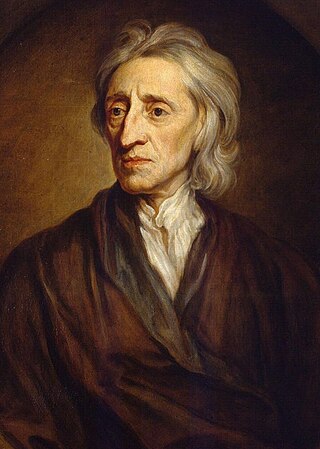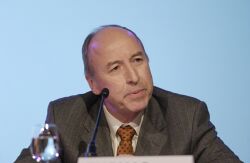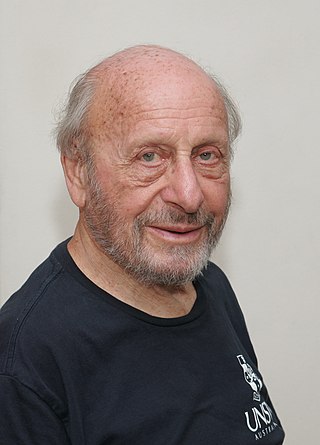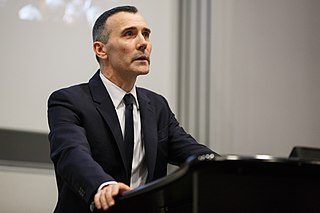
John Locke was an English philosopher and physician, widely regarded as one of the most influential of Enlightenment thinkers and commonly known as the "father of liberalism". Considered one of the first of the British empiricists, following the tradition of Francis Bacon, Locke is equally important to social contract theory. His work greatly affected the development of epistemology and political philosophy. His writings influenced Voltaire and Jean-Jacques Rousseau, and many Scottish Enlightenment thinkers, as well as the American Revolutionaries. His contributions to classical republicanism and liberal theory are reflected in the United States Declaration of Independence. Internationally, Locke's political-legal principles continue to have a profound influence on the theory and practice of limited representative government and the protection of basic rights and freedoms under the rule of law.

Political philosophy or political theory is the philosophical study of government, addressing questions about the nature, scope, and legitimacy of public agents and institutions and the relationships between them. Its topics include politics, justice, liberty, property, rights, law, and the enforcement of laws by authority: what they are, if they are needed, what makes a government legitimate, what rights and freedoms it should protect, what form it should take, what the law is, and what duties citizens owe to a legitimate government, if any, and when it may be legitimately overthrown, if ever.

Sir Henry James Sumner Maine,, was a British Whig comparative jurist and historian. He is famous for the thesis outlined in his book Ancient Law that law and society developed "from status to contract." According to the thesis, in the ancient world individuals were tightly bound by status dealing with(in) a particular group while in the modern one, in which individuals are viewed as autonomous agents, they are free to make contracts and form associations with whomever they choose. Because of this thesis, Maine can be seen as one of the forefathers of modern legal anthropology, legal history and sociology of law.

Charles Margrave Taylor is a Canadian philosopher from Montreal, Quebec, and professor emeritus at McGill University best known for his contributions to political philosophy, the philosophy of social science, the history of philosophy, and intellectual history. His work has earned him the Kyoto Prize, the Templeton Prize, the Berggruen Prize for Philosophy, and the John W. Kluge Prize.

Sir Robert Filmer was an English political theorist who defended the divine right of kings. His best known work, Patriarcha, published posthumously in 1680, was the target of numerous Whig attempts at rebuttal, including Algernon Sidney's Discourses Concerning Government, James Tyrrell's Patriarcha Non Monarcha and John Locke's Two Treatises of Government. Filmer also wrote critiques of Thomas Hobbes, John Milton, Hugo Grotius and Aristotle.
Early modern philosophy The early modern era of philosophy was a progressive movement of Western thought, exploring through theories and discourse such topics as mind and matter, is a period in the history of philosophy that overlaps with the beginning of the period known as modern philosophy. It succeeded the medieval era of philosophy. Early modern philosophy is usually thought to have occurred between the 16th and 18th centuries, though some philosophers and historians may put this period slightly earlier. During this time, influential philosophers included Descartes, Locke, Hume, and Kant, all of whom contributed to the current understanding of philosophy.

Some Thoughts Concerning Education is a 1693 treatise on the education of gentlemen written by the English philosopher John Locke. For over a century, it was the most important philosophical work on education in England. It was translated into almost all of the major written European languages during the eighteenth century, and nearly every European writer on education after Locke, including Jean-Jacques Rousseau, acknowledged its influence.

Thomas Lee Pangle, is an American political scientist. He holds the Joe R. Long Chair in Democratic Studies in the Department of Government and is Co-Director of the Thomas Jefferson Center for Core Texts and Ideas at the University of Texas at Austin. He has also taught at the University of Toronto and Yale University. He was a student of Leo Strauss.
John Greville Agard Pocock was a New Zealand historian of political thought. He was especially known for his studies of republicanism in the early modern period, his work on the history of English common law, his treatment of Edward Gibbon and other Enlightenment historians, and, in historical method, for his contributions to the history of political discourse.
Thomas Peter Ruffell Laslett was an English historian.

Sir Ernest Barker was an English political scientist who served as Principal of King's College London from 1920 to 1927.
István Hont was a Hungarian-born British historian of economics and political thought, University Reader in the History of Political Thought at the University of Cambridge.

British philosophy refers to the philosophical tradition of the British people. "The native characteristics of British philosophy are these: common sense, dislike of complication, a strong preference for the concrete over the abstract and a certain awkward honesty of method in which an occasional pearl of poetry is embedded".

Geoffrey Colin Harcourt was an Australian academic economist and leading member of the post-Keynesian school. He studied at the University of Melbourne and then at King's College, Cambridge.
Judith Frances Dunn, is a British psychologist and academic, who specialises in social developmental psychology.
Richard Ashcraft was an American political theorist and Professor of Political Science at UCLA. He graduated from Harvard College (BA) and University of California, Berkeley (PhD).
Richard Vernon is a Canadian academic and from 1981 he has been Professor of Political Science at the University of Western Ontario.
Mark Goldie is an English historian and Professor of Intellectual History at Churchill College, Cambridge. He has written on the English political theorist John Locke and is a member of the Early Modern History and Political Thought and Intellectual History subject groups at the Faculty of History in Cambridge.

Richard Bourke is a UK-based Irish academic specialising in the history of political ideas. His work spans ancient and modern thought, and is associated with the application of the historical method to political theory. He is Professor of the History of Political Thought at the University of Cambridge, and a Fellow of King's College, Cambridge. He was formerly Professor of the History of Political Thought and Co-Director of the Centre for the Study of the History of Political Thought at Queen Mary, University of London. In July 2018 Bourke was elected a Fellow of the British Academy (FBA).
James Henderson Burns was a Scottish historian of medieval and modern political thought who also studied utilitarianism and Jeremy Bentham.











